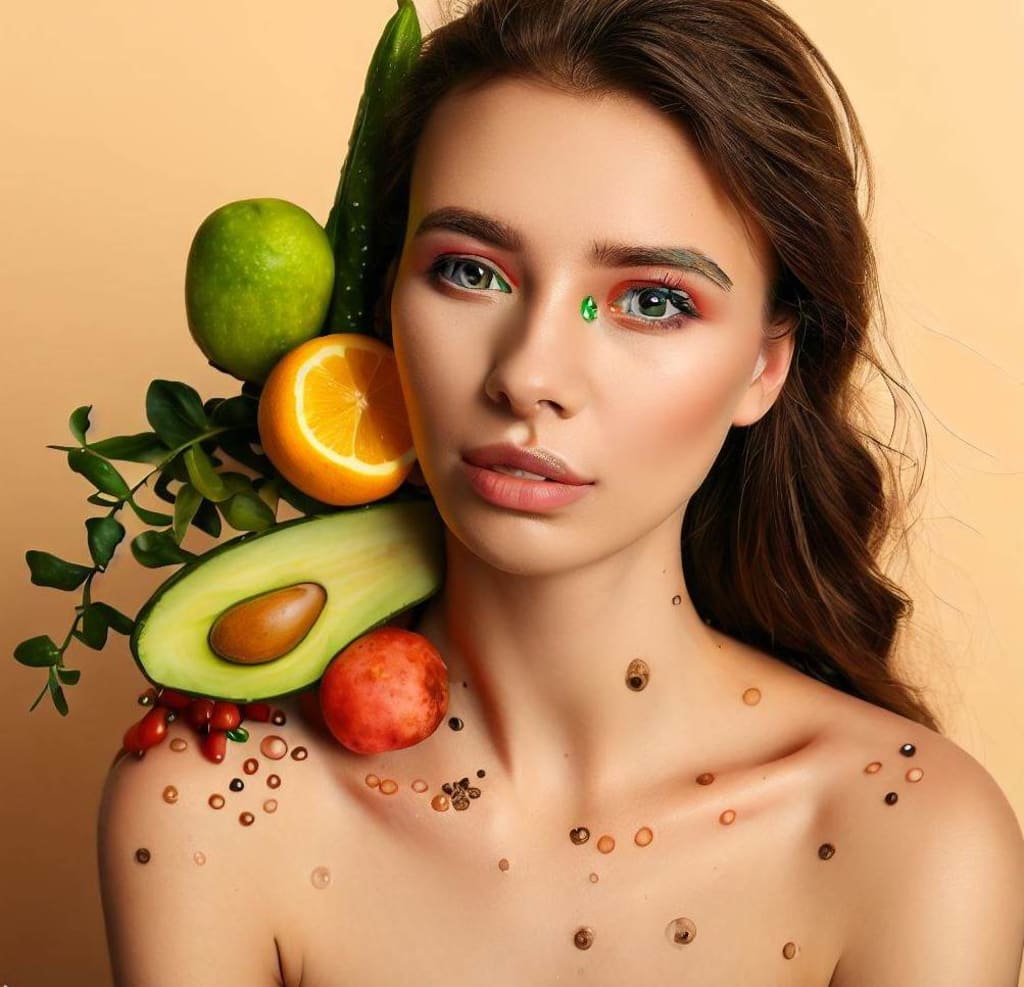Diet and Acne: Exploring the Link and Foods to Promote Clear Skin
Say Goodbye to Acne Breakouts! These 5 Foods Will Transform Your Skin

Acne, a common skin condition that affects millions of individuals worldwide, can be a source of frustration and self-consciousness for many. While factors such as hormonal changes, genetics, and hygiene play a role in the development of acne, recent research has shed light on the potential link between diet and this skin condition. Understanding the relationship between diet and acne is essential for those seeking to promote clear skin and minimize acne breakouts. This essay aims to explore the connection between diet and acne, as well as highlight some foods that can help promote a healthy complexion.
Historically, it was believed that diet had no impact on acne. However, emerging evidence suggests that certain dietary factors can influence the development and severity of acne. One such factor is the glycemic index (GI) of foods. The glycemic index measures how quickly carbohydrates are broken down and released as glucose into the bloodstream. High GI foods, such as refined carbohydrates and sugary snacks, can cause a rapid increase in blood sugar levels, leading to a surge in insulin production. Insulin, in turn, triggers the release of other hormones, such as insulin-like growth factor 1 (IGF-1), which has been associated with acne development. Studies have found that consuming a diet high in high GI foods is associated with an increased risk of acne.
In addition to the glycemic index, the Western diet, characterized by its high consumption of processed foods, refined sugars, and unhealthy fats, has also been implicated in the development of acne. This diet lacks essential nutrients, such as vitamins, minerals, and antioxidants, which are crucial for maintaining healthy skin. Furthermore, the Western diet promotes inflammation in the body, and chronic inflammation has been linked to acne. On the other hand, a healthy diet rich in whole foods, including fruits, vegetables, whole grains, lean proteins, and healthy fats, provides the necessary nutrients and antioxidants to support healthy skin and reduce inflammation.
While there is no one-size-fits-all approach when it comes to diet and acne, several foods have shown promise in promoting clear skin. One such food group is fruits and vegetables, particularly those rich in antioxidants. Antioxidants help protect the skin from damage caused by free radicals, unstable molecules that contribute to inflammation and aging. Berries, such as blueberries, strawberries, and blackberries, are excellent sources of antioxidants. Other fruits and vegetables, such as spinach, kale, and carrots, are also beneficial for the skin due to their high content of vitamins A, C, and E, which help nourish the skin and support its health.
Omega-3 fatty acids, found in fatty fish like salmon, mackerel, and sardines, have also been associated with improved skin health. These healthy fats possess anti-inflammatory properties that can help reduce acne-related inflammation. Additionally, omega-3 fatty acids play a role in maintaining the integrity of the skin barrier, preventing excessive dryness and promoting a healthy complexion.
Probiotics, often referred to as "good bacteria," have gained attention for their potential benefits in skin health. Probiotics help maintain a healthy gut microbiome, which is essential for overall health, including the skin. A disrupted gut microbiome can contribute to inflammation and skin issues.
Furthermore, green tea, a popular beverage consumed worldwide, has been shown to possess properties that can benefit the skin. Green tea contains antioxidants called catechins, which have anti-inflammatory and antimicrobial effects. These properties may help reduce inflammation in the skin and inhibit the growth of acne-causing bacteria. Drinking green tea regularly or applying green tea extract topically may be beneficial for individuals with acne-prone skin.
It is important to note that while these foods have shown potential benefits in promoting clear skin, they should be part of a balanced diet and not viewed as a cure-all for acne. Every individual is unique, and factors such as genetics, lifestyle, and overall health also contribute to acne development. Consulting with a dermatologist or a registered dietitian can provide personalized guidance on dietary changes that may be beneficial for acne-prone individuals.
In conclusion, the link between diet and acne is an area of growing interest in dermatology research. While diet alone may not be the sole cause of acne, emerging evidence suggests that certain dietary factors can influence its development and severity. Consuming a diet rich in whole foods, low in high GI foods, and avoiding the Western diet may help promote clear skin and reduce acne breakouts. Incorporating fruits and vegetables, omega-3 fatty acids, probiotics, and green tea into the diet may provide additional support for healthy skin. Ultimately, maintaining a balanced diet, alongside other acne management strategies, can contribute to a clearer complexion and overall well-being.






Comments
There are no comments for this story
Be the first to respond and start the conversation.